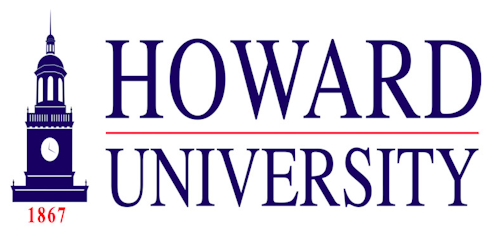Howard University student protest: 3 questions answered
- Written by Marybeth Gasman, Professor of Higher Education and Director Penn Center for Minority-Serving Institutions, University of Pennsylvania

Editor’s note: In order to gain more perspective on the underlying issues of the student-led protest at Howard University, which is now in its seventh day, The Conversation reached out to Marybeth Gasman, a leading scholar on historically black colleges and universities, commonly referred to as HBCUs. What follows is a brief Q&A with Gasman.
HBCUs are often portrayed as more nurturing environments[1] for black students than predominantly white institutions. But the current student protest at Howard University, one of the nation’s most prominent HBCUs, seems to seriously call that rosy portrayal into question. Among other things, students at Howard are complaining about issues that range from lack of housing to indifference to sexual assault on campus to financial malfeasance. Why is there so much trouble in paradise?
The research on nurturing and supporting environments at HBCUs pertains to faculty and student relationships and also the relationships between peers[2]. Research also tells us that the area that Dillard University President Walter Kimbrough has long called “The Bermuda Triangle of HBCUs[3]” (the offices of the financial aid, the registrar, and the bursar) and how well those three offices are run is a problematic area for many HBCUs. My own research[4], and research that I conducted along with Nelson Bowman[5] as well as Sibby Anderson-Thompkins[6], drawing upon interviews with over 4,000 HBCU alumni, finds that problems in this area are the number one reason why HBCU alumni do not give back to their alma maters. It is vital that HBCUs conduct internal and external audits in this area, just as all colleges and universities should.
I also think it is important to not see HBCUs as “paradise.” There are aspects of HBCUs that are wonderful and supportive, but they are complex institutions that are all very different. They are similar in design to all colleges and universities, and thus messy and sometimes complicated; all colleges and universities have problems in various areas. If you look around the nation, you find financial aid, sexual assault and financial mismanagement[7] at all types of colleges and universities. In the case of Howard, it is a very prominent HBCU and thus attracts a great deal of attention. In addition, research[8] shows that many people paint HBCUs with a wide brush — blaming what happens at one on all of them. It’s the same thing people do with African-Americans — the actions of one person are used to describe everyone. That’s how racism works and it is often used against HBCUs. We don’t see the problems of one majority institution being used to describe other majority institutions.
Howard University gets nearly $200 million[9] in direct funding annually from the federal government and is the only HBCU to get direct federal funding. How could or how should this special relationship with the federal government come into play given the issues that students are currently raising?
Yes, they receive direct funding from the federal government through Congress, as does deaf-serving Gallaudet University[10].
If federal financial aid dollars were misused, then Congress or the Department of Education could be involved. That said, it is important that Howard University properly steward the federal funds (or any funds) and this was not the case in the alleged misappropriation of funds at Howard[11].
Some members of HUResist – the student group that is leading the protest at Howard – have indicated that they hope students at other HBCUs[12] will rise up and demand change as well. To what extent do you think that will happen – and also to what extent do you think that is necessary – and why?
I think you are seeing more activist and emboldened students at HBCUs[13]. See the student voices at Hampton[14], for example. It’s important to note that with the increased use of social media and protest movements across the nation about various topics (racism, gun control, sexual assault), colleges and universities, including HBCUs, are not immune to protests playing out on their campuses.
One thing I am concerned about is the way that some HBCU alumni and people of all racial and ethnic backgrounds (who did not go to HBCUs) are making fun of[15] or mocking Howard[16] and other HBCUs because of the alleged embezzlement of funds at Howard. This type of behavior doesn’t help Howard or HBCUs even though it may bring laughs on social media. It will be used against HBCUs by those who do not have their best interest at heart.
Instead, people would benefit from researching the situation to get all the facts, meeting with key individuals involved, and working out a plan to ensure this situation doesn’t happen again. If people care about HBCUs, they can be critical, but they also have to take action to make HBCUs stronger and more resilient when these kinds of issues arise.
References
- ^ nurturing environments (medium.com)
- ^ faculty and student relationships and also the relationships between peers (www.hup.harvard.edu)
- ^ The Bermuda Triangle of HBCUs (books.google.com)
- ^ research (repository.upenn.edu)
- ^ Nelson Bowman (eric.ed.gov)
- ^ Sibby Anderson-Thompkins (works.bepress.com)
- ^ financial aid, sexual assault and financial mismanagement (www.washingtonpost.com)
- ^ research (repository.upenn.edu)
- ^ nearly $200 million (www2.ed.gov)
- ^ Gallaudet University (www.gallaudet.edu)
- ^ alleged misappropriation of funds at Howard (www.washingtonpost.com)
- ^ they hope students at other HBCUs (www.chronicle.com)
- ^ activist and emboldened students at HBCUs (files.eric.ed.gov)
- ^ student voices at Hampton (www.wral.com)
- ^ making fun of (twitter.com)
- ^ mocking Howard (twitter.com)
Authors: Marybeth Gasman, Professor of Higher Education and Director Penn Center for Minority-Serving Institutions, University of Pennsylvania
Read more http://theconversation.com/howard-university-student-protest-3-questions-answered-94458

